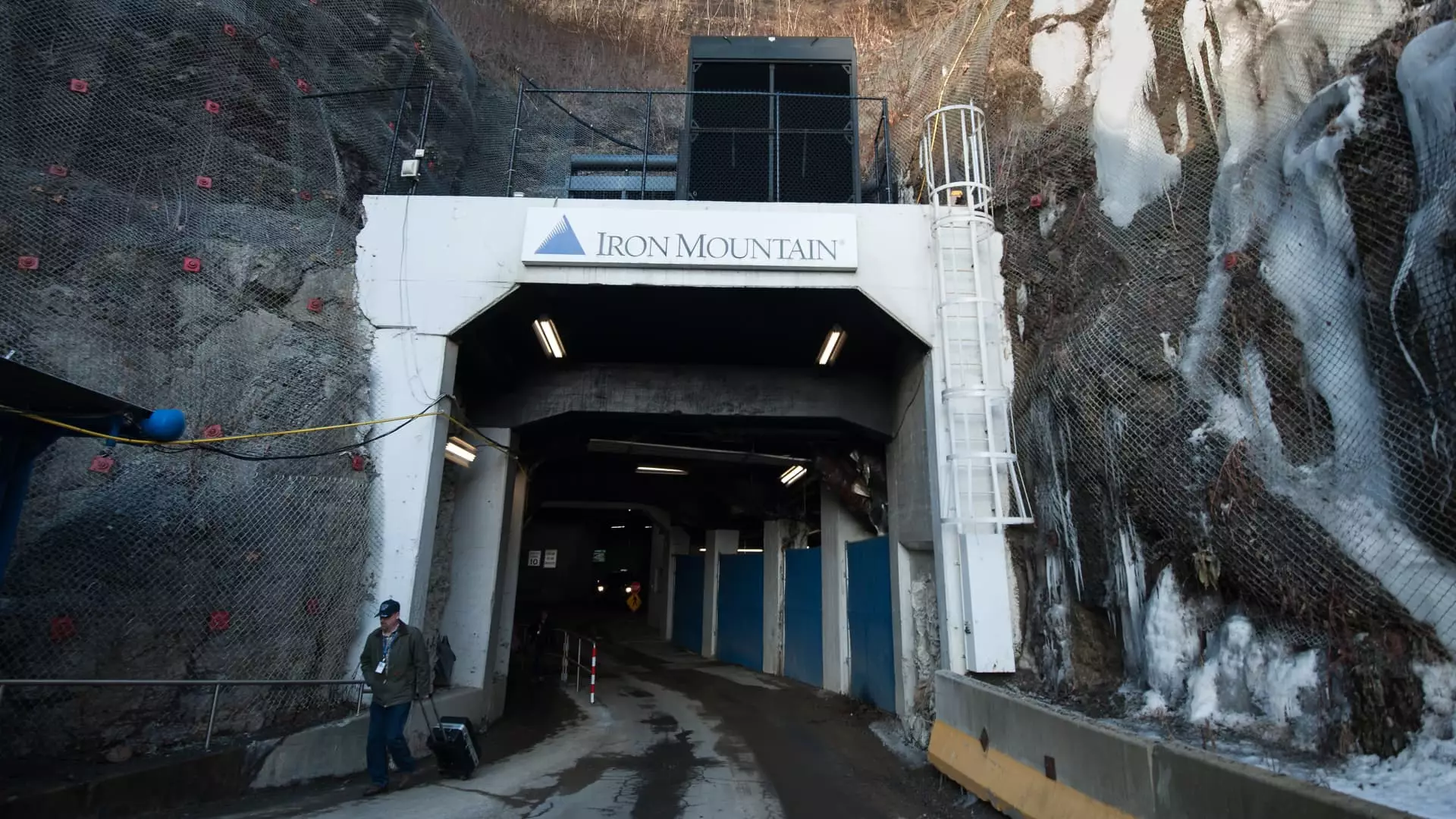In a recent Oval Office encounter, billionaire entrepreneur Elon Musk engaged President Donald Trump with fervent remarks regarding inefficiencies within the federal government’s handling of employee retirement paperwork. This unusual setting—a tech titan discussing bureaucratic dysfunction with the head of state—sparked considerable interest, particularly in the way Musk drew attention to a limestone mine run by Iron Mountain, a company that stores sensitive governmental documents. His description of the mine as a “time warp” left many questioning both the operational practices of federal agencies and the implications of such inefficiencies on American taxpayers and workers alike.
The venue itself—a comfortable political stronghold—contrasted sharply with Musk’s discontent. He detailed how the operational speed of the mine’s elevators dictated the pace at which retirement applications could be handled, provoking disbelief regarding government operational standards. The notion that a physical elevator could significantly delay bureaucratic processes illustrates broader systemic problems in public administration, particularly juxtaposed with modern technological advancements.
Musk’s candid expression of dissatisfaction had immediate repercussions for Iron Mountain, a company well-established in the niche of data storage and document management. Following the comments, Iron Mountain’s stock experienced a notable plummet—over 10% in one week—prompting concerns about potential impacts on federal contracts. Investors reacted swiftly to Musk’s statements, fearing that heightened scrutiny could threaten Iron Mountain’s lucrative agreements with government bodies.
However, Iron Mountain’s CEO, Bill Meaney, adopted a more optimistic perspective, framing the situation as a unique growth opportunity. By emphasizing the company’s robust engagement in digital transformation efforts with federal agencies, Meaney sought to reassure stakeholders that Iron Mountain’s broader business model remained robust despite potential fallout from Musk’s comments. His assertion—that the drive toward efficiency might align perfectly with Iron Mountain’s capabilities—not only aimed to mitigate immediate investor concerns but suggested a longer-term vision for the company’s role within governmental operations.
Musk’s critical observations cast a spotlight on the intricate relationship between private companies and public institutions, particularly under an administration that emphasizes austerity measures. The Department of Government Efficiency (DOGE), which Musk discussed, epitomizes the present governmental ethos of resource optimization. This focus on efficiency reflects a significant shift in how federal agencies operate, as they increasingly seek to shed excesses and streamline processes.
From the angle of public policy, this movement could dismantle longstanding practices that are deemed outdated, but it also risks generating instability for companies like Iron Mountain, heavily reliant on government contracts. The juxtaposition of Musk’s critique and Meaney’s strategy raises a vital question: how can private firms adapt and thrive amidst a climate of tightening federal budgets and growing demands for accountability?
Despite the concern resonating through market channels, analysts from Wells Fargo and Barclays provided a counter-narrative, arguing that the investor reaction was disproportionate. They underscored that Iron Mountain’s revenue is diversified across numerous customers, minimizing the risk of devastating financial repercussions should government contracts be retracted. This viewpoint encourages investors to adopt a broader perspective on the company’s future, minimizing the panic instigated by Musk’s comments.
This perspective encourages a more grounded approach to assessing Iron Mountain’s prospects, acknowledging that even potential contract terminations might not lead to catastrophic losses, largely due to the financial safety nets within its operational frameworks. Analysts argued the possibility that the government is still legally bound to retain records—and thus necessitate Iron Mountain’s services—safeguards the business against sudden operational alterations.
Musk’s disparaging remarks about age-old practices not only revealed systemic inefficiencies but also instigated a broader conversation about the nature of government contracting in contemporary times. An immediate shift in public perception often redefines how companies approach federal relationships. The stakes are higher for firms in the delivery of government services, making it crucial for them to stay ahead of shifting demands and technological advancements.
Furthermore, this incident serves as a wake-up call, urging both governmental agencies and private contractors to prioritize modernization and agility in adapting to evolving administrative efficiencies. By fostering innovation, stakeholders can cultivate deeper connections and responsiveness to both governmental needs and public criticism.
As Elon Musk’s comments reverberate through financial markets and political discourses, they ignite pressing discussions about efficiency in public service and the intertwining roles of private contractors in the realm of government operations. It will be essential to continue monitoring the developments in this space, as the implications of this critique may signal a new trajectory for government inefficiencies at large.

